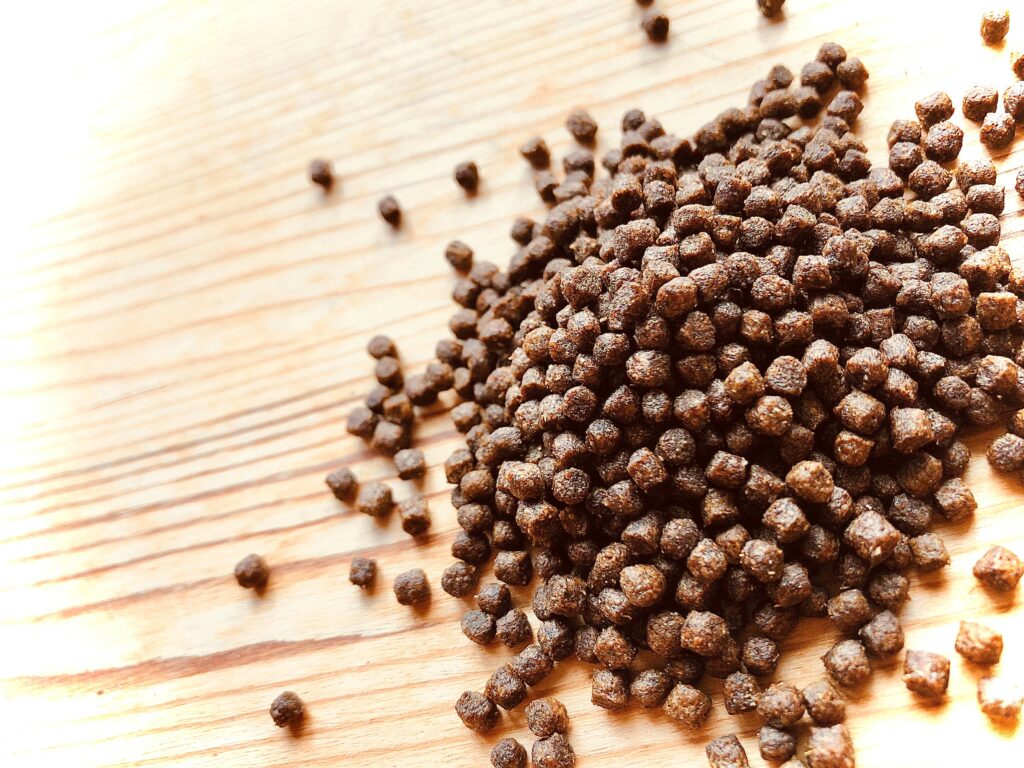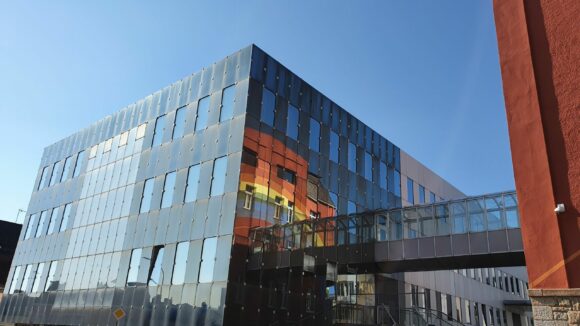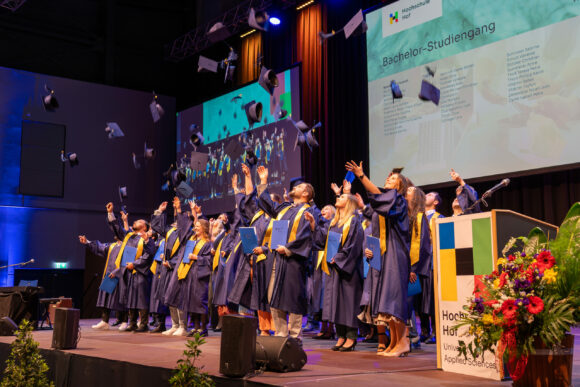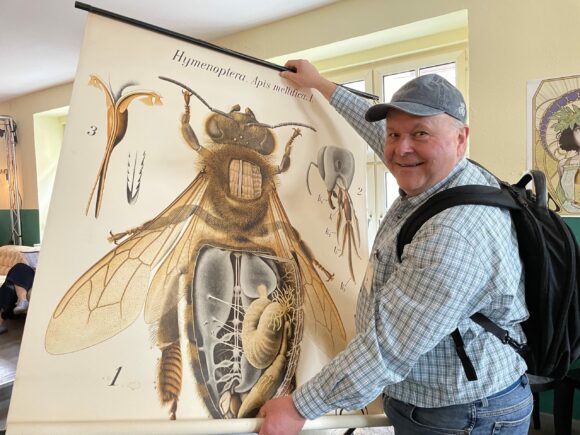With a new research project, a team at the Institute for Water and Energy Management at Hof University of Applied Sciences (iwe) aims to develop more sustainable feed for fish. Funded by the German Federal Ministry of Education and Research, the project “Optimized rapeseed protein for the complete replacement of fish meal” (in short: “OpRaVAF”) will produce a novel and high-quality rapeseed protein that can be used to produce a fish meal-free fish feed.

Image: Harvey Harbach;
Project leader Dr. Harvey Harbach explains the background, “Most aquaculture is dependent on feeds that have relied on fishmeal as the main protein source for decades. Fishmeal is extracted from the sea by catching small fish. However, it is considered certain that this form of fishmeal production can no longer sustainably cover the rapidly growing aquaculture sector.”
Rising world population needs to be fed
The challenge is clear: by 2050, it is estimated that the world’s population will have grown to nearly 10 billion people. This population must continue to be supplied with high-quality food
“In particular, the demand for especially healthy foods such as fish is rising continuously, thanks to increased prosperity and current nutritional trends. Fish can be provided as food in two basic processes, fishing and aquaculture. However, yields from global fisheries have been stagnant for decades, leading experts to predict that the world’s demand for fish will only be met through aquaculture.”
Dr. Harvey Harbach
He said this is also why controlled farming of fish has been the fastest growing sector in the food industry for years. It is estimated that aquaculture will supply 60-70% of global fish consumption as early as 2030.
Sustainability in the production system
However, this rapid growth also raises questions about the sustainability of production systems. This is one of the issues being addressed by the team led by research group leader Dr. Harvey Harbach at the Institute for Water and Energy Management at Hof University of Applied Sciences (iwe). In the OpRaVAF project, the university is working together with the Fraunhofer Institute for Individualized and Cell-based Medical Technology IMTE, Department of Aquaculture and Aquatic Resources. The president of the Green-Tech University Hof, Prof. Dr. Dr. Jürgen Lehmann, is pleased about the project in the field of sustainable food production
The truly meaningful transfer of research into practice, as implemented in this project, reflects the university’s mission as a driver of innovation.”
Prof. Dr. Dr. h.c. Jürgen Lehmann
Alternative to fish meal
To make aquaculture more environmentally friendly, it is time to find a fully sustainable alternative for fishmeal. “Accordingly, it is necessary to develop a sustainable feed for fish so that our human consumption of fish could lead to less environmental impact,” says Dr. Harvey Harbach. Several alternatives for fishmeal, both of plant and animal origin, have already been tested in various fish species over the past few decades. Important for the substitute protein source is availability in large quantities, a favorable price and the preservation of various important ingredients. To date, however, no component has been found that meets all the requirements. The team at the university will therefore take a closer look at rapeseed. The domestic oil and protein crop is considered to be an alternative with immense potential, as it fulfills all the points mentioned. One challenge for the use of rapeseed as a fish meal substitute, however, is antinutritive substances. These provide a bitter-tart taste, which fish do not like. Feed with rapeseed is therefore simply not eaten by the fish, which makes them grow less well.
At Hof University of Applied Sciences, research is now being conducted on this problem as part of the project in order to further expand the benefits of aquaculture and thus contribute to the production of high-quality and safe food for humans.







